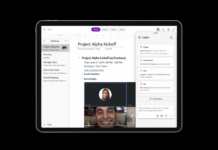To help users browse safely, Chrome will indicate the connection security with an icon in the address bar. Historically, Chrome has not explicitly labeled HTTP connections as non-secure.
Finally, Google Chrome Will Tell You Which Websites Are Not Secure
From quite some time, the tech giant Google is pressing a number of Internet portals to modify their protocols and start using HTTPS instead of using HTTP, so, today we will talk about all those sites that use HTTP.
This is an attempt in which the technology giant Google takes some time to work, all with the sound purpose of trying to convert the Internet and all websites that compose a much safer place for all users.
Therefore the company is working hard putting certain measures to achieve this, in fact, the tech giant Google is also taking a big step in this direction to force such movements and thus ensure secure connections worldwide.
One of the measures which are already working for the firm is the use one of its most successful services, yes, we are indicating its own web browser well-known as Google Chrome. Currently, this web browser is already actively running at over 50% of desktop systems worldwide, so, the importance of the measures taken in this will be efficient.
In fact, this extended browser will start dialing all web portals on the Internet that in one way or another collect passwords or banking data of its visitors and will mark it as “unsafe” site. Thus intend to ensure that it is the only way to prevent websites that are labeled as unsafe is using the mentioned HTTPS.
The tech giant Google stated that “The beta version of the Google Chrome will be the first to get it in the coming weeks before the same feature is implemented in the stable release as well. This label will roll out gradually, so in early 2017 all users should see it when visiting HTTP websites asking for sensitive info”.
The Google also added that “To help users browse safely, Chrome indicates connection security with an icon in the address bar. Historically, Chrome has not explicitly labelled HTTP connections as non-secure. Starting in version 56, Chrome will mark HTTP pages that collect passwords or credit cards as non-secure, as part of a long-term plan to mark all HTTP sites as non-secure”.
In addition, Google also announced that Chrome 56 Beta is also introducing some changes on websites that allow devices to interact with Bluetooth low energy using the Bluetooth API in Android, Chrome OS, and Mac.


